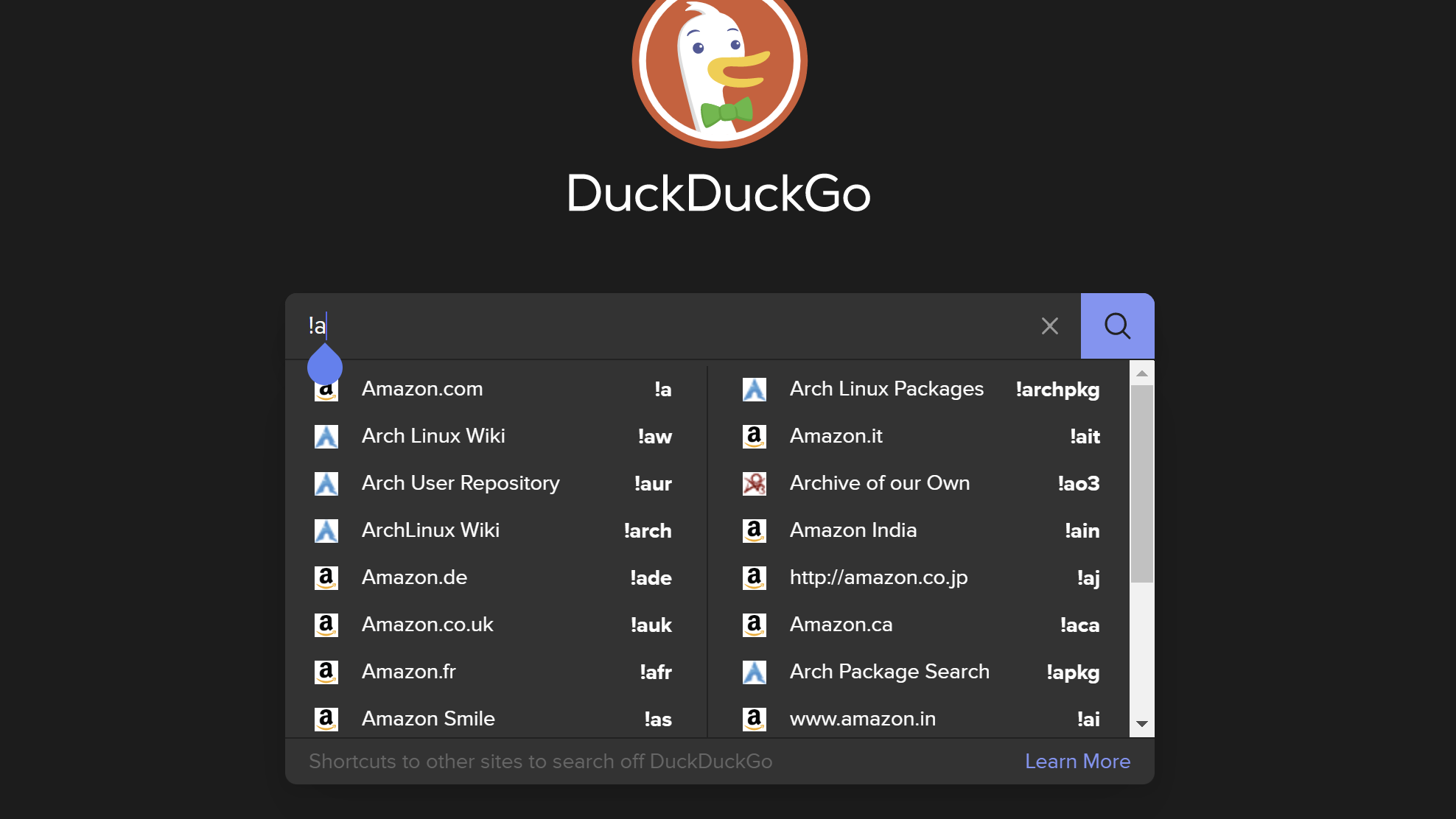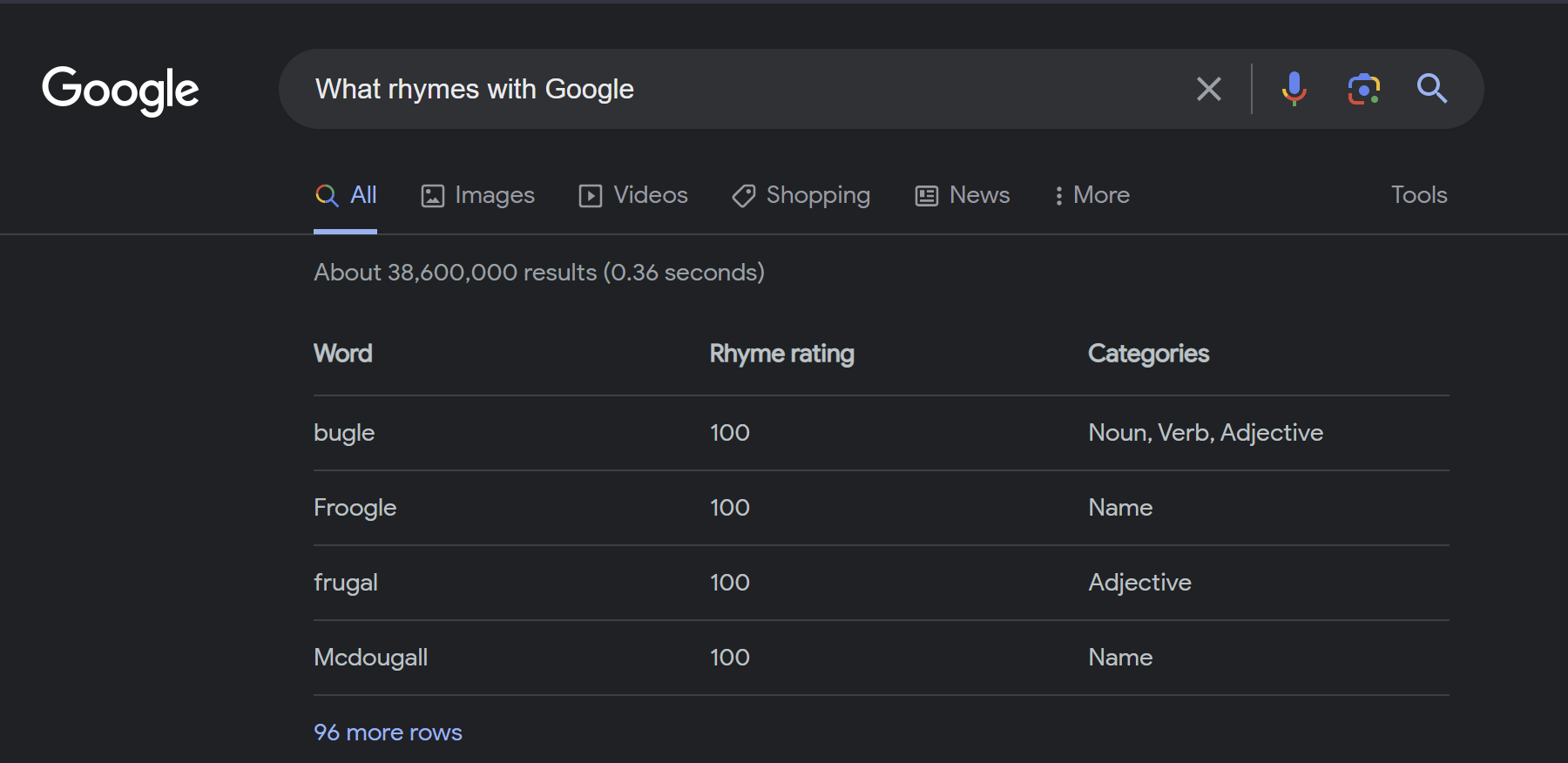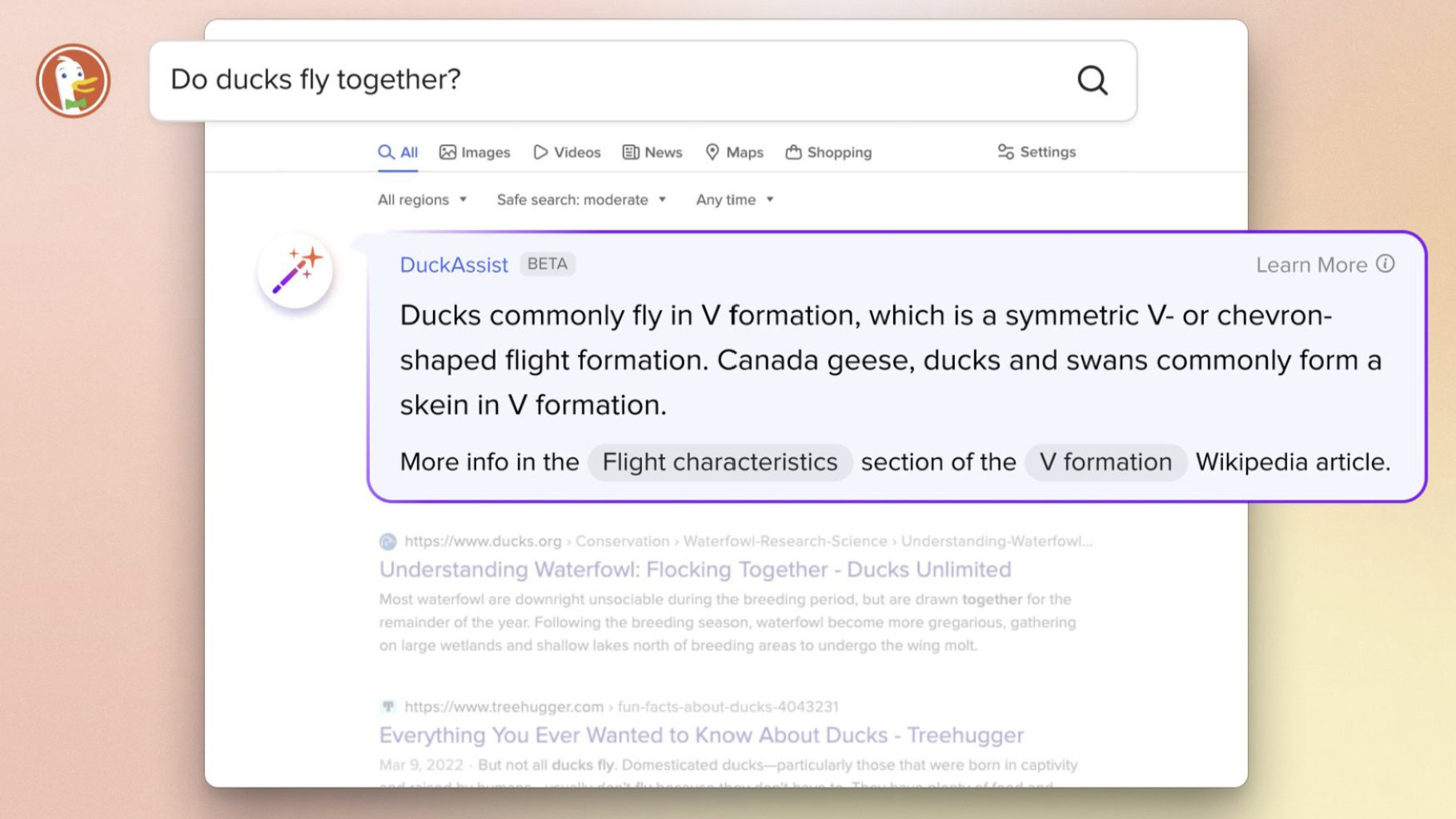Affiliate links on Android Authority may earn us a commission. Learn more.
DuckDuckGo vs Google: Which search engine reigns supreme?

Search engines serve as our gateways to the internet, helping us find answers to our questions and products and services to suit our needs. Google is undeniably the most popular search engine worldwide, but it isn’t the only option in town. DuckDuckGo is an underdog that has emerged as a preferred choice for those concerned about online privacy and data tracking, and it’s no ugly duckling when it comes to features, either.
In this DuckDuckGo vs Google showdown, we’ll compare their features, security, mobile apps, and ease of use to help you determine which is right for you.
DuckDuckGo vs Google: At a glance
Here's a quick look at some of the main differences between DuckDuckGo and Google:
- Google has more advanced search algorithms. If you have a Google account, Google will track your user profile to prioritize search results that are relevant to your search history, online activity, and preferences.
- Google has extra tools and services. Google offers a suite of integrated services like Google Docs, Google Maps, and Google Images that all work in tandem with the search engine.
- Google collects and analyzes user data to tailor ads and search results, a practice some users find intrusive and biased.
- DuckDuckGo offers stronger privacy protection. DuckDuckGo doesn't track or store personal data, making it a trusted choice for privacy-focused users.
- DuckDuckGo doesn't personalize search results; all users get the same search results for the same query, and there are no sponsored search results.
- DuckDuckGo doesn't offer many integrated services but has a simple, ad-free interface.
DuckDuckGo vs Google: Features
Both Google and DuckDuckGo provide unique features to enhance the search experience, but they also have much in common.
Homepage
Both search engines have a similar minimalist layout from the homepage, with a logo and a search bar below it. And if you find the homepage a little too simple, either one has theme customization options to make them suit your style.
Both search engines will offer suggestions to complete your query as soon as you start typing, but Google has a few more ways to search than just text, such as by voice using a microphone or by image using Google Lens.
Google also has its “I’m feeling lucky” button, which will take you directly to the first-ranked page for the search term you entered. DuckDuckGo’s equivalent feature to bypass search results is a thing called bangs. DuckDuckGo has a library of bang shortcuts in the form of an exclamation mark followed by a few characters that take you directly to the results of a specific webpage. For example, if you want to look up pizza on Wikipedia, you would type “!w pizza,” hit enter, and you’ll find yourself on the pizza page of that site.

Search results
Both Google and DuckDuckGo show you quick answers on the search results page. Google will pull relevant information, images, maps, excerpts from sites, and related search terms to display at the top of the page.

DuckDuckGo has Instant Answers, which also appear at the top but are open source, so any developer can view them or submit fixes through DuckDuckGo’s GitHub repository. While not as robust as Google snippets, DuckDuckGo’s Instant Answers can do more than answers basic calculations or factual information, such as checking the status of a flight or giving you ideas for creating a strong and secure password.

As for the quality of search results, Google is renowned for its powerful and intelligent search algorithms, which is why everyone gets something different when they search Google, even if they search the same thing. By default, Google tailors what it shows you in the results, and in the search suggestions, depending on what is relevant to your user profile. For those that don’t know, a user profile contains data about your identity, such as search history, age, location, education, household income, relationship status, and online contacts. This has led to some concern about what has been dubbed “filter bubbles” – curated feedback that reinforces what someone already likes or agrees with rather than information that is different or contradicting.
On the other hand, DuckDuckGo doesn’t track user activity or collect any information to create user profiles. That means that everyone sees the same search results, regardless of who they are or where they are searching from. It also means that there are no sponsored posts at the top of the rankings and no personalized ads that pop up in your feed. While Google may have a larger pool of sources for its web crawler to draw from, DuckDuckGo has its own web crawler, the DuckDuckBot, which scans multiple sources for search results, such as Bing, Yahoo, Search BOSS, Wolfram Alpha, and Yandex. Notably, it does not use results from Google, an intentional move by the founder to set themselves apart.
Integrations
Both search engines offer video and image search functionalities and current news, but Google has a few more search tools related to shopping, books, flights, and finance. Both search engines also have navigable maps, but DuckDuckGo’s maps aren’t as robust as Google Maps, lacking the ability to save locations and user-generated reviews and images of key landmarks. It only shows information pulled from the web, such as business contact info. It also doesn’t have up-to-date public transit information like Google, but it will provide driving or walking directions.
One advantage to Google when it comes to features is the number of integrations with its own products. With a Google Account, you get access to Gmail, Google Drive, Google Docs, and more, all of which are useful productivity tools. Although, DuckDuckGo does have integrated email protection, allowing you to create an @duck address that will block email trackers before it forwards everything to your personal inbox.
Google also has its own web browser, Google Chrome, which is the stock browser for most Android devices, allowing you to further integrate into the Google ecosystem. DuckDuckGo doesn’t have a browser, but it does have a browser extension that you can use with Chrome and other browsers to give you the privacy essentials, such as blocking trackers and using an encrypted connection.
Artificial Intelligence
Keeping up with the times, both Google and DuckDuckGo are rolling out AI assistants to help with search results. Google’s Search Labs are currently only available in the United States, and its results aren’t very good so far, to put it mildly. Still, it’s in the early stages, and we anticipate them improving the more it learns from people who interact with it.

DuckDuckGo recently released its own AI called DuckAssist, which currently uses OpenAI and Anthropic to summarize answers to common questions based on what it can find in Wikipedia. DuckAssist is in the beta phase and appears instead of Instant Answers for a sparingly few search queries and can make mistakes with complex questions, but we expect it to expand and improve over time.
DuckDuckGo vs Google: Security and privacy
In terms of privacy, DuckDuckGo is the clear winner. DuckDuckGo’s main selling point is that it does not track user activity or store personal data, providing a safe option for users concerned about their online privacy. DuckDuckGo also serves as a shield while surfing the web, blocking third-party trackers, disabling cookies by default, and enabling an encrypted connection whenever possible. You can even see exactly how many tracking requests attempt to load on sites you visit.
In contrast, Google is known to collect a vast amount of user data to personalize search results and advertisements. While this allows for a more tailored search experience, it also raises concerns about user privacy and data security. Google does offer options to manage and limit this data collection, but it requires some digging into the settings. For instance, even if you disable personal results, Google still collects all that info in case you decide to turn it back on. You will have to go through each data category and disable the ones you aren’t comfortable sharing with Google.
Ease of use
Both Google and DuckDuckGo are user-friendly, featuring intuitive interfaces and easy-to-navigate search results. Google’s personalized search results may make it easier for users to find what they’re looking for, but the search results can also be crowded with ads and sponsored content.
DuckDuckGo offers a cleaner interface with fewer ads and an emphasis on privacy. However, because it does not personalize search results, users may have to sift through more results to find the information they want. If you know what you’re looking for, you won’t have a problem, but say you can’t remember the name of a song and search for a snippet of the lyrics; you might have a harder time finding it on DuckDuckGo since it’s not keeping track of the music you’ve listened to.
DuckDuckGo vs Google: Mobile apps
Both Google and DuckDuckGo have dedicated mobile apps for Android and iOS.
The DuckDuckGo app has a simple interface with an address bar and a tab switcher. Aside from all the search functions already mentioned, the DuckDuckGo mobile app offers app-tracking protection, blocking hidden trackers across apps on your phone, with quick stats on how many have been blocked by which apps. It also has a handy Fire button to clear all tabs and data with the tap of a finger.
The Google app has three main sections: Discover, Search, and Saved. Discover will show you news articles Google thinks are relevant to your interest, some of which may be sponsored. Search is your basic search, and Saved will show you collections of bookmarks, saved map locations, and more for you to group and organize your findings from the internet.
DuckDuckGo vs Google: Who wins?
When trying to choose between using DuckDuckGo and Google for your preferred search engine, the choice comes down to what you value more: personalized, comprehensive search results (Google) or privacy and unfiltered content (DuckDuckGo). Aside from just the privacy benefits, DuckDuckGo offers a range of useful features and a few tricks that even Google doesn’t have, such as bangs. Still, there’s no denying Google’s advanced algorithms and integrated services offer a well-rounded search experience if you don’t mind the data giant looking over your shoulder the entire time.
Do you value personalized, comprehensive search results or privacy and unfiltered content?
Google certainly dominates the search engine market, but DuckDuckGo demonstrates that a comparable experience doesn’t necessitate the same compromises on privacy. Despite being a smaller company, DuckDuckGo has made a name for itself, proving to be a worthy contender against the search engine behemoth. And even if you stick with Google, you can still enjoy the privacy benefits of DuckDuckGo by using the browser extension to block tracking from any of the websites you visit, which is a way to get the best of both worlds.